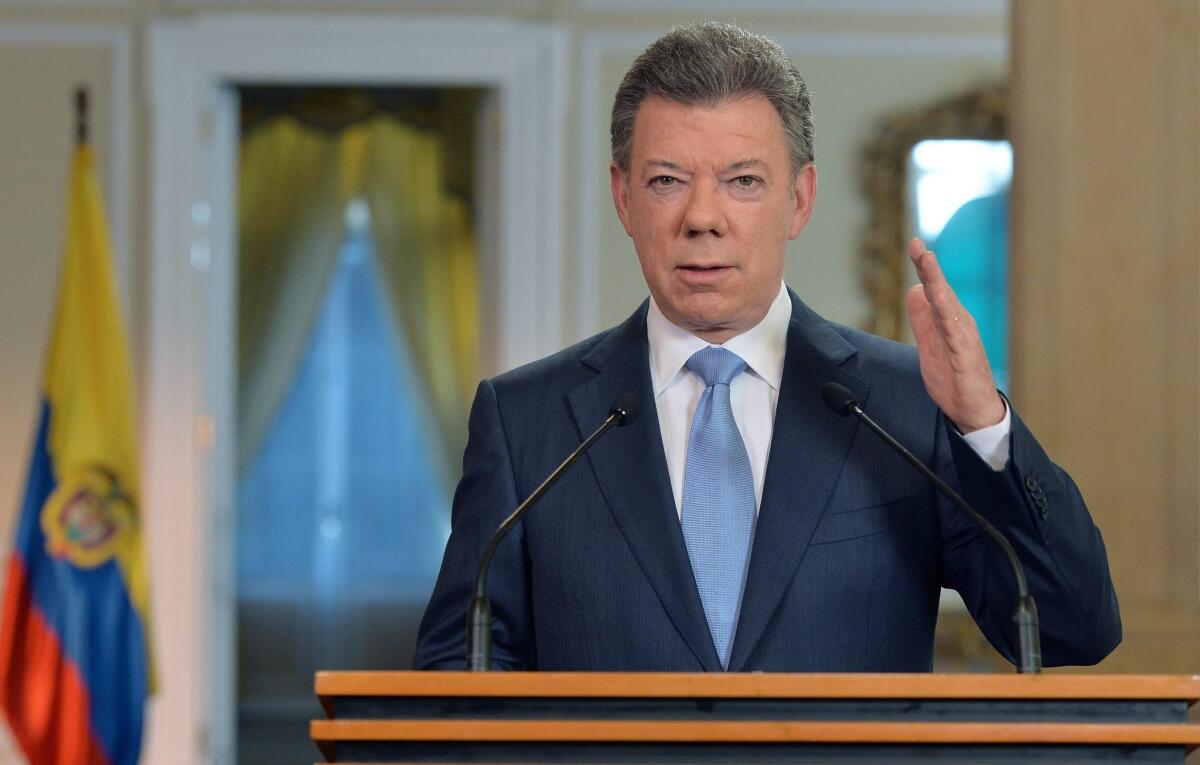Will peace come to Colombia?

A tentative deal reached this month between Colombia’s largest rebel group and President Juan Manuel Santos’ government could finally lead to an end to the country’s bloody, decades-long conflict.
The agreement establishes a basic framework under which the Revolutionary Armed Forces of Colombia will be allowed to participate in the country’s political life. It includes security guarantees for participants in any new political parties that may emerge, and it authorizes the creation of temporary special congressional seats for parties in areas where the conflict has been the most intense (and where the FARC tends to be strongest). In return, the Marxist rebels will presumably agree at the end of the process to renounce violence, bringing to a conclusion a 50-year guerrilla war that has left more than 200,000 people dead.
Much remains to be worked out, including how to guarantee the rights of victims of the conflict and how to combat illicit drugs; the FARC is believed to control vast swaths of the country’s coca-growing areas. But what has been achieved is historic and addresses one of the thorniest issues facing negotiators: the political reintegration of the FARC, which has long argued that it is too risky for its members to seek office. Those fears are not unfounded given what happened in the 1980s, when the FARC helped establish a leftist party known as the Patriotic Union. Thousands of members were killed by paramilitary death squads.
Some critics of the peace talks, including former President Alvaro Uribe, insist that the FARC isn’t interested in a real deal and is using the negotiations to buy time to regroup, just as it did during an ill-fated round of talks in 2002. Those critics argue that the conflict will end only with a military victory. But that hasn’t worked in the past, and the FARC, though weaker than it once was, remains a potent military force in some areas of the country.
Moreover, although it is true that the talks, which began last November, have moved slowly, they have yielded significant results. For example, in May, the government and the FARC agreed to create a land fund to redistribute parcels to landless peasants or those displaced by the conflict.
The reality is that at least three previous attempts at a negotiated peace have not achieved as much as the current talks. That’s because this time, both sides have immediate incentives to strike a deal. Santos is running for reelection next year. And the FARC surely must know that if Santos loses, it will face a conservative hard-liner who will return to the politics of war.
The Obama administration should continue to stand by Santos’ government, because its approach represents the best chance for peace in Colombia.
More to Read
A cure for the common opinion
Get thought-provoking perspectives with our weekly newsletter.
You may occasionally receive promotional content from the Los Angeles Times.






